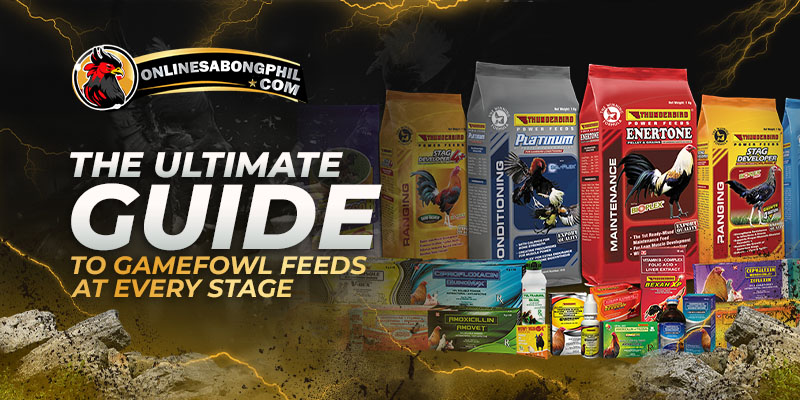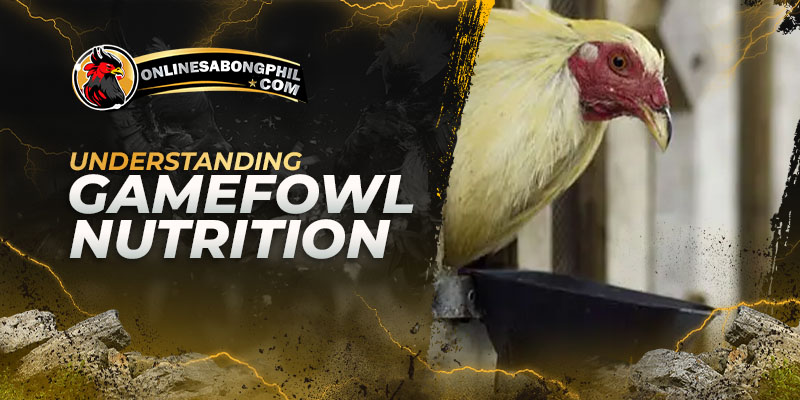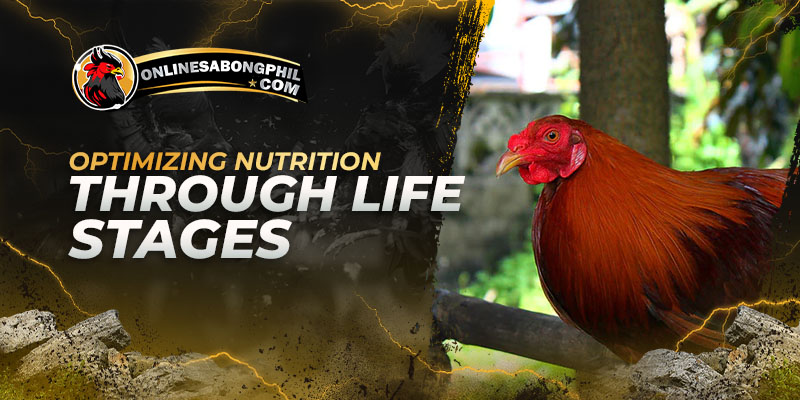In the competitive world of gamefowl, victory hinges on a rooster’s strength, stamina, and agility. While genetics play a crucial role, proper nutrition is the cornerstone that unlocks a gamefowl’s full potential. This article delves deep into the world of gamefowl feeds, equipping you with the knowledge to craft a winning feeding strategy for your champions.
Understanding Gamefowl Nutrition
Gamefowl have distinct nutritional needs at various stages of their life cycle. A chick’s developing body requires a different nutrient profile compared to a breeding rooster or a conditioning fighter. Here’s a breakdown of key nutrients for gamefowl:
Protein: The Muscle Maker
- Function: The cornerstone of muscle tissue, feathers, and enzymes, protein is essential for growth, repair, and overall health in gamefowl.
- Chicks (0-10 weeks): Chicks require the highest protein intake (20-27%) to support rapid growth and development of vital organs and muscles.
- Adult Roosters: For maintenance and conditioning, adult roosters benefit from moderate protein levels (14-22%). This range provides the necessary building blocks for muscle repair and peak performance without the negative effects of excess protein.
Fats: The Energy Powerhouse
- Function: Fats not only provide a concentrated source of energy for your gamefowl but also act as insulation to regulate body temperature, which is especially crucial during intense training and fights. Healthy fats like those found in corn and flaxseed are vital for developing strong muscles and maintaining a healthy weight.
- Dietary Considerations: While some fat is necessary, an excessive intake can lead to obesity and lethargy. Commercial gamefowl feeds are typically formulated with balanced fat levels to meet their specific needs.
Carbohydrates: The Fuel for Action
- Function: Carbohydrates are the primary source of readily available energy for gamefowl. Grains like corn, milo, and wheat provide the fuel necessary for sustained activity during training exercises and high-intensity cockfighting matches.
- Dietary Considerations: The specific carbohydrate requirements of your gamefowl will vary depending on their age and activity level. Conditioning feeds often contain higher levels of carbohydrates to meet the increased energy demands of pre-fight training.
Vitamins and Minerals: The Essential Micronutrients
- Function: While they may be present in smaller quantities, vitamins and minerals play a critical role in supporting overall health, immunity, and feather quality in gamefowl.
- Calcium: Essential for strong bones and development, particularly crucial for breeding hens producing eggs with sturdy shells.
- Vitamins A, D, and E: These vitamins support various bodily functions, including vision, immune system health, and proper feather development.
Optimizing Nutrition Through Life Stages
A successful feeding program caters to the specific needs of gamefowl at different stages of their life. The following table provides a general guideline for feed selection based on age and purpose:
| Life Stage | Age Range (weeks) | Focus | Feed Type |
| Chicks | 0-10 | Growth and Development | High-Protein Chick Starter |
| Growers | 10-20 | Muscle Development | Grower Feed (Moderate Protein) |
| Developers | 20-24 | Stamina and Endurance Building | Developer Feed (Increased Carbohydrates) |
| Conditioning | 24+ | Peak Performance | Conditioning Feed (Balanced Protein, Carbs, Fats) |
| Breeders | All Ages | Fertility and Chick Health | Breeder Feed (Balanced Protein, Calcium, Vitamins) |
Remember: While this guide provides a general framework, it’s important to remember that individual gamefowl may have specific needs. Always monitor your birds’ weight, activity level, and droppings.
Essential Feeding Tips for Gamefowl Success
Beyond the meticulously chosen feed itself, several crucial practices contribute to a successful gamefowl feeding program. These seemingly simple tips, when implemented consistently, can make a significant difference in the health, performance, and overall well-being of your birds.
Freshness is Paramount
Think of it as fueling an athlete for a competition. Just like human athletes wouldn’t perform optimally on stale food, your gamefowl deserves access to clean, fresh feed and water at all times. The stale feed can be not only unappetizing but also harbor harmful bacteria or mold that could lead to illness.
- Develop a Cleaning Routine: Establish a regular cleaning schedule for your feeders and waterers. Remove any uneaten feed daily and thoroughly clean the containers with warm, soapy water at least once a week. Allow them to dry completely before refilling.
- Proper Feed Storage: Store your gamefowl feed in airtight containers in a cool, dry location. This protects the feed from moisture, pests, and temperature fluctuations that can degrade its quality and nutritional value.
Portion Control: A Delicate Balance
Overfeeding is a common pitfall for new gamefowl owners. While it might seem logical to provide unlimited access to food, this can lead to obesity and lethargy. Overweight gamefowl are not only less agile but also more susceptible to health problems.
- Start Small, Adjust Wisely: Begin by offering smaller portions of feed throughout the day. Observe your birds’ eating habits and activity levels. If the feed is readily consumed and they appear active and engaged, the portion size is likely adequate. If feed remains uneaten or your birds seem sluggish, adjust the portions accordingly.
- Understanding Age-Specific Needs: Keep in mind that the appropriate portion size varies according to your gamefowl’s age and activity level. Chicks require smaller, more frequent feedings, while adult roosters in training may need slightly larger portions.
The Power of Variety: Supplementing for Optimal Health
While a high-quality commercial gamefowl feed forms the foundation of your feeding program, consider incorporating supplemental options for added benefits. These additions can provide essential micronutrients, promote digestive health, and even enhance the overall appeal of their diet.
- Fruits and Vegetables: Introduce chopped fruits and vegetables like apples, carrots, or leafy greens in moderation. These offer a source of vitamins, minerals, and hydration while also providing mental stimulation and enrichment for your birds.
- Grit: Indispensable for proper digestion, grit aids in grinding feed, allowing for better nutrient absorption. Commercial grit or crushed oyster shells are readily available options.
- Probiotics and Prebiotics: These gut-friendly supplements can support a healthy digestive system, boosting your gamefowl’s immune response and overall well-being. Consult your veterinarian for recommendations on appropriate probiotics or prebiotics for your birds.
Become an Adept Observer: Monitoring for Optimal Health
Your gamefowl is constantly communicating its needs through subtle signs. By becoming a keen observer, you can identify potential issues and adjust your feeding program accordingly.
- Weight Management: Check the weight of your gamefowl on a regular basis. Sudden weight increase or reduction may suggest underlying health issues. A veterinarian can help you identify an appropriate weight range for your specific birds.
- Activity Level: Observe your birds’ activity levels. Are they lethargic or overly energetic? Adjusting the feed type and portion size or incorporating supplements can help address these issues.
- Droppings Analysis: The consistency, color, and frequency of your gamefowl’s droppings can provide valuable insights into their digestive health. Consult a veterinarian if you notice any abnormalities.
Seek Expert Guidance: Consulting Your Veterinarian
A qualified veterinarian can be a valuable asset in your gamefowl’s overall health and well-being. They can provide guidance on specific feeding regimens based on your birds’ age, breed, and activity level. Additionally, they can recommend supplements to address any identified health concerns and ensure your champions are performing at their peak.
Conclusion
Consistent feeding practices and high-quality gamefowl feeds are the cornerstones of a successful gamefowl operation. By understanding your birds’ nutritional needs and implementing a strategic feeding plan, you can unlock their full potential and empower them to become champions.
Visit us at Onlinesabongphil.com for more guides and tips!



